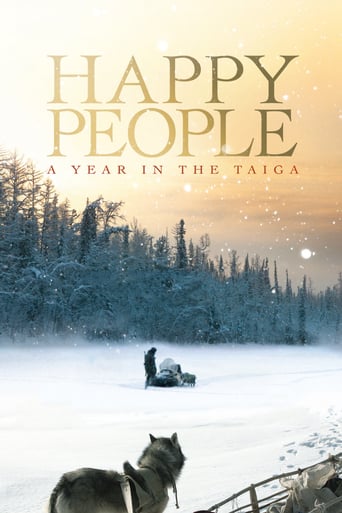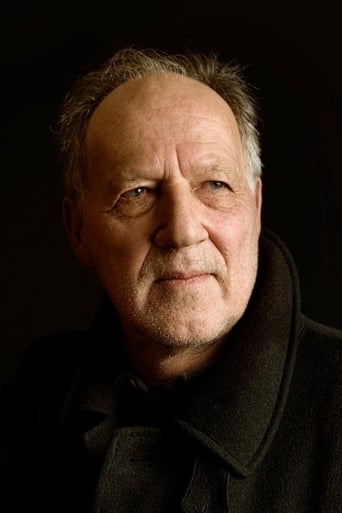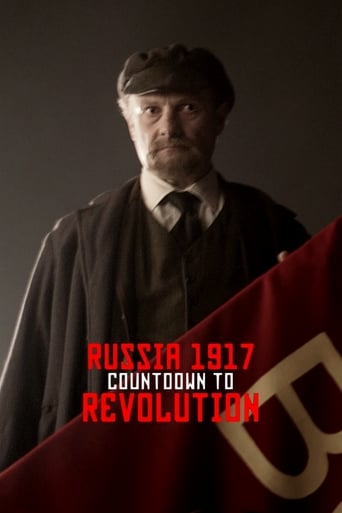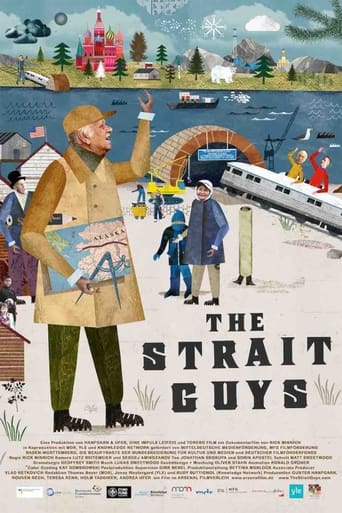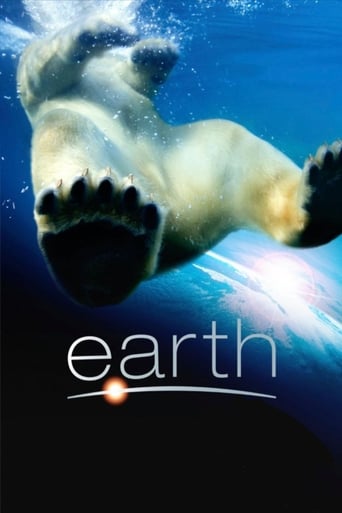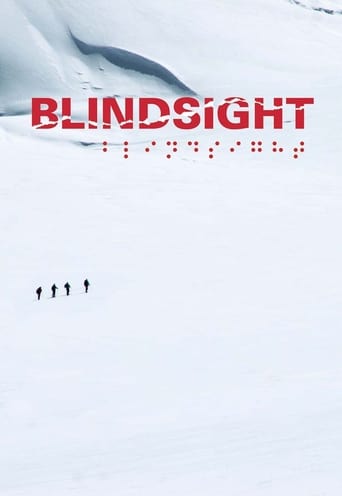Happy People: A Year in the Taiga (2010)
In the center of the story is the life of the indigenous people of the village Bakhtia at the river Yenisei in the Siberian Taiga. The camera follows the protagonists in the village over a period of a year. The natives, whose daily routines have barely changed over the last centuries, keep living their lives according to their own cultural traditions.
Watch Trailer
Cast
Similar titles

Reviews
For all the hype it got I was expecting a lot more!
Great example of an old-fashioned, pure-at-heart escapist event movie that doesn't pretend to be anything that it's not and has boat loads of fun being its own ludicrous self.
Like the great film, it's made with a great deal of visible affection both in front of and behind the camera.
The story, direction, characters, and writing/dialogue is akin to taking a tranquilizer shot to the neck, but everything else was so well done.
This documentary depicts the harsh life lived by some inhabitants of Bakhtia, Russia, a small village in Siberia (55 degrees north, 92 degrees east). Bakhtia is isolated, available only by ship and helicopter in the summer months. Otherwise the people there are on their ownThe movie concentrates on one Gennady Soloviev, a hardy fur trapper and hunter. Gennady is pretty much occupied full time just making a go of it--setting traps, stocking caches in summer for winter use, chopping wood, and so forth. Much of the year in the Bakhtia area is spent in sub-zero temperatures, with readings of -30F not being unusual. I am not too keen on being out at sub-zero temperatures for any great length of time. When Gennady sees that snow has damaged one of his cottages he has no problem with diving in and repairing it in -30F weather. The making of a canoe from scratch after downing a tree, using only an ax, was impressive--it is my observation that that is not a common talent in 21st century America. Paddling against the current on the Yenisei River looks to be an activity only for the strong. Watching this made me realize how far from elementary survival concerns most people in the United States are.The movie credits Dmitry Vasyukov as co-director. Vasyukov actually filmed all of the material for a four hour documentary and, for this movie, Herzog has taken that footage and edited it to 90 minutes, adding his narration. It would be of interest to see the original, since I suspect Herzog has imposed a certain idealized romanticism that reflects his own views rather than those of Vasyukov.For example, Herzog comments that, "They live off the land and are self reliant, truly free. No rules, no taxes, no government, no laws, no bureaucracy, no phones, no radio, equipped only with their individual values and standard of conduct." I think no society, however small, can function without understood rules and some form of structure. Gennady has the right to trap on a certain land area, such area being delineated by government oversight. The self reliance is not totally true. How did Gennady come by his snow mobile and chainsaw? Where did the gas come from to power those machines? Supplies were flown in by helicopter and ship; how were those supplies paid for? I wanted more information on the local economy. Since trapping sables was prized, I assume that sable fur was sold to high end consumers as part of how the trappers could afford to buy their supplies.As for happiness, I did not see these people as being exceptionally happy. Gennady admitted to despising some trappers that he saw as greedy. Is Gennady any happier than a computer programmer in Los Angeles who is passionate about her work?
I have recently seen my first 2 Werner Herzog documentaries, Into the Abyss and Grizzly Man and I loved both of them and so came to Happy People with high hopes. It was a bit of a let-down.Firstly, most people seem to give Herzog all the credit here yet he did not go out to Siberia to film any of his 'own' documentary. Whilst he shares directorial credit, Dmitry Vasyukov did all the beautiful camera-work and put in the hard days living in those conditions, so he must get the lion's share of the plaudits. Secondly, the film purports to be aboutthe lives of the villagers yet the vast majority of the film concerns one trapper. The film follows him and his dogs around as he goes about his life hunting animals in the wild. We learn next to nothing about the lives of the women or children in the village, and there are only sporadic moments featuring other menfolk. It felt as if the film was about this one hunter and the rest of the people in it were just context for his life. Thirdly, where are the 'happy people' the title refers to? I didn't see any particularly happy people in the film. I think the principle behind the film was to give the impression that people who lead simpler, remote lives are happier than the rest of us, but i saw no evidence of this whatsoever. The men who were shown collecting logs, who referred to their universal alcohol problems, looked particularly UNhappy. These people lead very difficult lives in extreme conditions. I'm not saying they were going around looking miserable, but they certainly weren't jumping for joy at their wonderful lives. It seems a bizarre title for the film. Finally, I like to learn from documentaries but I also like to be entertained and I found this film just a bit boring. This is not to say there are no good points ... there are scores of beautiful nature shots and it is an interesting look into a completely different way of life. That was not enough for me to make it a recommendation.
Saw this one a couple of years ago and was really stunned with the quality of this documentary.Movie crew lived through a year in Bakhta, small simple village of huntsmen and fishermen in Siberia, and they have done an amazing job of showing how simple life, hard (you bet) labour and everlasting circle of life make people... pure. Happy.There's not a hint of falseness, no pathos, no complaints. And that's probably what got to me the most: perfect documentary, no opinion imposed, just showing this life 'as is' - and the clarity of it strikes you, urban people, deep to the core.Must see, really.
Solid and straightforward illumination of the ways in which a few fur-trappers live and work year-round in the Siberian Taiga.Starting in Spring, we follow the stoic men on their seasonal routines in the village of Bakhtia on the Yenisei river. The utterly unique sight and sound of that big old river thawing and moving and creaking under the warm sun is totally sublime. With the onset of summer, the villagers participate in a fishing frenzy while fending off massive swarms of mosquitoes by rubbing tar all over themselves, their kids and their dogs. As autumn brings torrential rains, the water level rises and the trappers anxiously begin boating their heavy supplies into the vast forest. They begin repairing their traditional traps scattered throughout the expanse while re-constructing their personal wooden huts, which they will use as shelters along their treks through the deep snow.Other than one hilarious moment showing an alternatively modern fishing method, most all preparations for the long and lonely winter of work in the wilderness are performed according to very old cultural traditions. The simple and skilled construction of skis, traps, canoes, and huts from natural materials is shown with a patient fascination that draws us into a culture uniquely connected to the earth.Herzog's narration adds insight and a quirky humor to this otherwise forthright film. His patent deadpan humor -- largely deriving in his over-enunciated German accent -- and his honest admiration of these self-reliant men living off the land in total freedom from materialism and bureaucracy is refreshing, even if a bit romanticized.
